As part of the 2015 GV Summit, we invited our community members and partners to write essays that explain and illuminate the real-world effects of an Internet-related policy on citizens in a specific country or region. The goal of this competition was to amplify the voices and perspectives of our community and to help show the world the effects of law and practice, and that they did.
Judges Lina Attalah, Tim Davies, Rebecca MacKinnon, Lokman Tsui, and Tanya Lokot selected three outstanding pieces of writing with an honorarium and recognition at the Global Voices 2015 Summit. The winners included Cameran Ashraf (first prize), Marianne Diaz (second prize), and Endalk Chala (third prize), along with essays from India, Russia and Sri Lanka that received honorable mention. The three winning essays, unedited for the purposes of competition, appear below. Those that received honorable mention appear here. We also give special thanks to Summit sponsor Google, which provided support for the competition.
FIRST PRIZE: CAMERAN ASHRAF, IRAN – UNITED STATES
Who do we lose with Internet censorship and control?
In 2011 I asked an Iranian human rights activist in Tehran to search for something simple to test filtering. I forget it now, but it was something like American football. And he replied that he was scared. He couldn't do it. But aren't you curious?, I asked. No. Not any more. I'm not curious at all. I don't ask questions. I don't even ask questions about things I want to know. It doesn't matter. That time is past. And he disconnected. We never spoke again.
I have been involved in the field of Internet censorship since 2009. Since that time much has been made of the lost revolutionary or activist stifled by Internet censorship or the missed opportunity of political and social change that comes when the Internet is controlled. This is the foundation for millions of dollars in funding, documentary films, and countless articles in global media. Through these sources the Internet is presented as a vehicle for freedom of expression, an opportunity to express ourselves and know others and in doing so create meaningful political change. But my friend's last words show there is someone missing in this story, and it's not the political activist or democratic idealist. The person missing has nothing to do with politics in the least. His last words forced me to ask myself: Who do we lose with Internet censorship?
In 2006 more than 600,000 AOL users had their personal search histories leaked. The search history of one of these users, #711391, became the subject of a fascinating series of short films titled “I love Alaska.” In these films, the viewer listens to the search queries of a lonely, religious, married woman in the American south. She searches for personal meaning, desperately seeks intimacy in her marriage, travels into infidelity, with sojourns through regret, Internet addiction, and a longing to escape from her life and move to Alaska. More than “big data” – there is a human being exploring parts of herself in one of the few intimate environments in which we can be utterly ourselves: the Internet. Away from social pressure and the judgment of others user #711391 reveals how the Internet allows us to engage in a mode of self-exploration and research, a way to wrestle with the parts of ourselves which we may be scared to explore with others, but which we feel safer in exploring through an anonymous search engine. The Internet was not censored, monitored, or controlled for user #711391. She was able to ask questions of an intensely personal nature in a medium which would not judge her. Some of her searches:
2006-05-09 i thought i could handle an affair but i couldnt
2006-05-09 god can heal affairs
2006-05-12 i feel so damaged inside from an affair i had
2006-05-15 how can you tell if your spouse put spyware on your computer
2006-05-16 how to get him back
But for my friend in Tehran, Internet control paralyzed any sense of self-exploration – he wouldn't ask any more questions about anything that could get him in trouble. A deep and unknown part of his self would lay hidden. How much of a young man in his twenties still remains undiscovered and unknown to himself? While certainly there are other means to explore ourselves, not all questions can be explored openly, especially with strong social or cultural taboos. Perhaps some of these questions are familiar: Am I homosexual? Does God exist? Am I a bad person? Is there anyone else like me? Is it OK to be myself? Why does my partner hit me?
So we ask these questions through the Internet, using search engines to ask the same questions we may have once privately asked of a god. But we ask these questions of ourselves, to seek out connection and understanding of who we are and to understand our place on earth, especially when such understanding is absent in our daily lives or societies. For a brief moment, finding some small element of self-acceptance or understanding online can be the difference between a life of vitality and spirit and a life of bare existence. And a life of spirit is nourished through regularly knowing one is accepted and loved precisely for who they are.
Through Internet censorship and control we lose an ability to be our own secret human – the one we are when nobody is around, sometimes late at night before we go to bed – and the type of human we are entitled to be by simple virtue of our birth. We can be within our existence and within our world most fully when we are most ourselves.
I spoke with an activist refugee in Amsterdam later that year. I mentioned the fear of the Internet. I needn't say more, as she understood immediately. She said I couldn't understand it, but I was on to something. It was scary to wonder and ask. Not worth it. Even in Europe she had blocked off parts of herself which yearned to be known through Internet searches: uncertainty about her sexuality, her marriage at a young age to a man she barely cared for, and trying to reconcile her religion with human shortcomings. But after the 2009 protests and Internet clampdown she became scared of searching for an answer – she knew the government was monitoring the Internet. Our last coffee together was heartbreaking: she was too far committed to the person she had invented as a means of survival to change. She had become the undiscovered person through an internalized fear of self-exploration.
For some, Internet censorship and control is a political tragedy. It represents the stifling of the democratic dream. For me, Internet censorship is a personal tragedy. It is the tragedy of seeing the time for self-wonder end and the beginning of an era in which there are no more questions about ourselves to ask because the risk is just too great. In other words, a time for opening ourselves to ourselves has ended. An activist in Europe was still unable to ask the questions she wanted to know about her own self and who she was. Another in Tehran has even stopped looking for things which he likes. Maybe someone is interested in learning more about a prohibited religion, their eternal questions unsatisfied by what they have access to. Perhaps another person sees something metaphysical rather than political in democracy, a form of self-liberation rather than political liberation, but will never know that because the word “democracy” is censored. It could be that an “indecent” photograph would be part of someone's journey to heal the wounds of domestic abuse, or that they could search about domestic abuse in the first place, but any avenue to explore and make peace in private is utterly shuttered, controlled, and monitored.
Internet censorship and control build walls in the global flow of information, and this is certainly a political tragedy. But it also builds walls inside ourselves against ourselves. This is the great personal tragedy of Internet censorship and control: young men and women who believe the time for questions has passed. How we learn to relate to and explore ourselves doesn't end when our geography or circumstances change. It has been learned and adopted through being instilled with varying degrees of fear and terror, something which can take a lifetime to face. The last time we spoke, the young refugee in Amsterdam taught me how how these learned behaviors follow us wherever we go. She looked at me, speaking in a voice which sang beyond herself and beyond her time and said: “I want to fly out of this life. Fly out of Amsterdam, out of everything. But I can't. I wanted to learn this, but in some way I forgot how.”
Cameran Ashraf is an Iranian-American digital rights activist and social entrepreneur who is currently completing his PhD at UCLA on the geopolitics of the Internet. Cameran joined Global Voices in 2009.
SECOND PRIZE: MARIANNE DÍAZ, VENEZUELA
Living with Fear of Speaking Up
On March 2014, I was woken up at 6am by loud knocks on the door of my apartment. I live in a very quiet building, and I have a doorbell, but more importantly, this was happening in the midst of nationwide protests against the government that had lasted more than a month already.
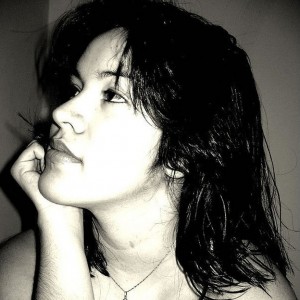
Marianne Díaz
Venezuela's broadcast television and radio suffer from a deep self-censorship caused by several political and economic factors. In consequence, when the protests started spreading throughout the country, causing clashes with police, and difficulties to mobilize through public roads, citizens turned to social media in order to learn about the events, whether intending to participate or just to know if they were going to be able to get to work that day. At night, people broadcasted the police attacks via streaming from their mobile phones. A lot of people claimed connections were slower at the peak moments of the protests, accusing the government of throttling the connections, and it was said that at some points the police had cell-phone signal blocker devices when they came in to suppress the protests. A Colombian TV channel that was documenting the protests was removed from the programming cable companies and their web streaming was blocked.
I had been mapping censorship and instructing people on how to use encrypted communication tools since the protests started. So, that morning when the knocks startled me awake, I got up, scared to the bone, and was even more scared when I peered through the window to the parking lot and saw several men with long weapons and bulletproof vests circling the building as if it were some sort of SWAT operation. My boyfriend tried to look through the fish eye, both of us making as little noise as possible. The police were raiding the building.
They were not looking for us, of course, but amidst the fear and confusion there was no way of knowing that for sure. Less than a week after that day, the home of Mildred Manrique, a journalist for the national newspaper 2001, was also raided and she was taken up for interrogations. There were raids and arrests all over the country without court orders nor any evidence of a crime being committed.
At home, I stood still and did not open the door, and eventually the police left for other apartments because it was not us they were looking for. At Mildred's, no one opened the door and the police broke it down with a battering ram. They found a bulletproof vest (which every reporter must have in compliance with safety regulations), and a computer “containing material against the government,” and that was enough for taking her up for interrogation.
A few hours after the raid, I posted on Facebook a jittery and anxious status update on what had happened. My mom scolded me on the phone: “You will get into trouble for doing that.” Even though I usually disregard my mom's warnings for seeming, to me, overprotective, I could not shake the feeling that in this case she was right, although I was not in the mood for capitulation.
The Venezuelan government has been applying regulations for online censorship erratically since around 2007. There is no coherent policy for content regulation; rather, there are waves of detentions and blocking of content, and these cases are used as exemplification of how certain behavior is not to be tolerated. A myriad of websites have been blocked on and off by the government, sometimes officially through the telecommunications commission, others indirectly through the state-owned CANTV. Not once, in all those blockages, some of which still persist, was a trial conducted. The concept of net neutrality has been rejected by government officials, who have stated that “neutrality does not exist, because technologies are not neutral.” Neutrality, indeed, is a foreign concept for Venezuela, where everything has a political subtext, even the coffee brand you choose or the color you decide to wear on any given day. The public politics of the Venezuelan government regarding the Internet, and specifically social media, are not neutral at all: from the creation of a “communicational guerrilla”, aimed to “face the lies and misinformation spread by private media” devoted to create trending topics and harass people on social networks, to the foundation of a “Deputy Ministry for Social Networks” this year, the functions of which are yet to be seen.
As times goes by, government itself seems to become more and more involved in social networks, in an attempt to “gain terrain”. Diosdado Cabello, one of chavismo's strong men, said back in 2010 that “The opposition believes itself to be the owner of social networking” and claimed they would “assault social networks to counter the views expressed by [their] opponents.” Meanwhile, laws become more restrictive in a variety of ways. Content that “promotes, justifies or incites public disturbances,” just to quote an example, is banned (and these sort of vague definitions have been already used to encompass a broad array of conducts) and the e-commerce bill, on the verge of being passed as I write these lines, would also forbid the electronic commerce of pornography, medicines, basic food and several other goods.
People have been detained for tweeting indelicate comments about President Hugo Chávez's death; for tweets about banking rumors or for posting a fake picture; they are accused of “destabilizing the country”, even though most of them did not have more than a hundred followers at the time of the detention. These obviously disproportionate measures are not aimed to be only a punishment against those citizens, but a warning sign for everyone else. Moreover, dissidents are portrayed by state media as “traitors”, “rioters” and “destabilizers”, which means that when you voice unpopular opinions in a non-safe environment, you can be subject to attacks, not from the government, but from your peers. Your political opinions come into play when you interview for a new job, when you buy from a state-owned store, when you try to take advantage of any financial assistance provided by the State to study, work or purchase goods. This in turn ends up being yet another cause for self-censorship.
There were people arrested, both in 2014 and before, for comments they had posted online. In 2013, Andrés Rondón Sayago was detained for allegedly spreading fake photographs of burning ballots, and was later made to record a video (uploaded to the YouTube channel of “Venezuela Full of Life,” a government program intended to reduce crime) issuing a statement in which he declares to have published the picture “by mistake” via Facebook, and asked people to “stop publishing this kind of material” and avoid situations of “terrorism”. He was trembling, his voice shivering.
I still cannot see that video without feeling like crying. That fear, so exposed in Rondón Sayago, lives within each one of us who dare to dissent. We were then, as we are now, scared of speaking up. And I think this is the most pervasive form of censorship: the one that places the censor inside your own head and makes you think every thought at least twice to make sure that is something you could say in public.
Someone actually said to me, after the protests, at a meeting regarding the state of the net, that as we say online everything we think, we need to be careful even of what we think. And there's nothing that frightens me more, as we give in inch by inch, that the fact that we are getting used to living with that fear, adapting ourselves to the size of the container in which we have been confined to live.
Marianne Díaz is a Venezuelan lawyer and fiction writer. She works with Acceso Libre and serves as the Creative Commons lead for Venezuela. She joined Global Voices in 2010.
THIRD PRIZE: ENDALK CHALA, ETHIOPIA
When blogging is held hostage of Ethiopia’s telecom policy
It takes a great deal of time to get anywhere in Addis Ababa. The traffic jams require you to be enormously patient. You need to have an incredibly similar patience if you use Ethiopia’s telecom services. If you send a text message to a person waiting to meet with you and inform her/him you are running late because of a traffic jam, your text message might show up hours and sometimes even days after you have met with that person.
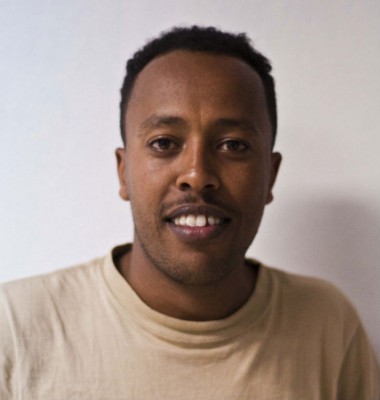
Endalk Chala
In Ethiopia a lot of times telecommunication networks don’t work very well. Phone calls usually drop in the middle of a conversation and calls last usually much less than advertised minutes on pre-paid mobile phone cards. During a rainy season, it’s not unusual to have extended network outages even in the capital. Mobile text message services were only restored in 2008 after three years of suspension following the 2005 election, the only contested election in the nation’s entire political history.
In May 2011, the entire country was disconnected from global Internet for hours, because government feared the Internet would fuel the then Egyptian-like “revolution” in the Ethiopia. Since 2010 EthioTelcom, the country’s government owned solitary telecom services provider, has cycled through three to four CEOs, offered multi-million dollar service expansion contracts particularly to Chinese companies, and conducted countless pressers promising the service will improve very soon. Despite years of EthioTelecom getting better news headlines, there hasn’t been any major improvement in the service — in fact there is a deterioration of quality of services.
In the first half of 2014 alone, more than 25 network outage incidents were reported nationwide by government-controlled media. Data collected for a master’s thesis on quality of telecom services in Ethiopia showed that more than four-in-ten text messages do not go through on time or do not go through at all and one-in-six telephone calls (both mobile and land line) dropped in the middle of conversations. The same research reported that to upload a file as low as 2 MB or less on standard Gmail could take up to 5 five minutes on average.
Ethiopia’s telecommunication is always a symbol of backwardness. More than a century ago, when Emperor Menelik II connected the palace and the treasury through a telephone line the sound of disembodied voices frightened the nobilities and the priests. They tried to banish the telephone line by insisting that telephone is a work of demons. Fast forward to 2014 and the current rulers are re-enacting familiar scenarios by putting telecom technologies out of the reach of the majority of Ethiopians, coating their effort with a political ideology.
For Ethiopia’s current rulers, an honest inquiry into the worsening telecom service situations would be equivalent of being a monger of neoliberal ideology to sell the country’s telecom to foreign companies. If you ask why there is just a single and not a properly functioning ISP for Ethiopia’s 90 million people, your question might be considered an attempt to sell the country to foreign neoliberal capitalists. In fact, this sort of reaction is always ironic, but it still becomes more so when the accusers themselves are accused of selling lands cheaply for foreign investors by uprooting people. A simple question like why you need to have a business license to buy a domain name for your personal blog from EthioTelecom will get you in trouble.
Here is one example. Solomon, a good friend of mine who is a recent graduate of political science, wanted to open a personal blog with his country’s domain name, .et. He applied to buy the domain name but he was told he needed to have business registration license before the state monopoly company allowed him to use the domain name he wanted for his personal blog. According to Solomon, his insistence to get his preferred domain name for his personal blog have brought a palpable tension between himself and an employee of EthioTelecom’s customer service department that their conversations didn’t last long before the employee called for security to get Solomon removed from the company’s building.
For Solomon and many Ethiopians this is a familiar pattern. Ethiopians who attempted to experiment with their freedom of expression through the Internet are always punished by the state or state own telecom corporate. Take my blogger colleagues. In 2012 we started a collective blog called Zone9. After just three weeks we found out that our blog was not accessible in Ethiopia. We never believed government would take our blog as a serious political threat and block it as soon as we started blogging. We were trying to form our identity as one voice of Ethiopia’s post-civil war generation with an engaged heart and a thick skin. We wanted to give government the benefit of the doubt, despite the fact that we received a lot of advice from journalists who suffered from brutal actions by the government. We refused to be co-opted by different Ethiopian political forces, which usually are described as deeply divided along many ideological lines, ethnicities and religious issues. Our objective was not to confront the government but to use Ethiopia’s tiny web space as much as possible to kindle genuine public discussions on the grass root level. We wrote about public interest issues.
In a bid to elongate the lives of our blogs we tended to direct our criticisms to the general situation instead of focusing on blatant governmental maladministration issues. We opened more than ten blogs just in two months, moving each time, tweaking the web addresses of the blogs to sneak through censorship. We alternated our blogs from one blogging platform to another. We shifted from BlogSpot to WordPress and then back to BlogSpot. This was of course is a poor digital media strategy, but it was no child’s game. We passed the limit, which meant being beaten up by the police and most likely charged with serious crimes such as inciting violence and terrorism. This is what happened to nine of my friends, who are currently suffering in prisons in Addis Ababa.
We have learned that our assumption that government will not touch us because they know our vulnerabilities and will not arrest us was wrong. The maximum thing we did was a respectful online activism of asking the government to start to respect the country’s constitution and rectify poor telecom service issues, like the one I described at beginning of this piece. Yes our campaigns were able to attract a significant number of Ethiopia’s online community but ours were never criminal activities. And yet paradoxically, when the Ethiopian government wants to use the telecom technology for their purpose they use it effectively both as a surveillance tool and communications company to send massive text messages to countless Ethiopians as part of their propaganda campaign.
In the charge sheet of my colleagues, the prosecutor presented full script of the ‘warrantlessly’ wiretapped phone conversations I made with my friends while I was in Ethiopia as an evidence of a ‘crime’ we committed in the ‘court’ of law. They scripted our telephone conversations we made about our private lives, about the training we took on online encryptions, and everything in between. Government accused us of collaborating with political groups which we were critical of.
What is so significant about Zone9 bloggers’ case is that it speaks volumes about Ethiopia’s intersectional issues such as misguided telecom policies, lack of political space to allow diversity of opinions, poverty and the global anti-terrorism rhetoric.
The case of Zone9 bloggers tells us how political rulers use communication technology such as telecommunication networks as a private possession of the regime to maintain their status quo both in Ethiopia and internationally as an ally for global anti-terrorism forces and as development partners. In this digital age, the Zone9 blogger were striving to have a grasp of agency through the Internet. But sadly, we are trapped in between local greedy power circles that are using the global anti-terrorism rhetoric to crush anything they find unpleasant in the name of the global war on terror and the dysfunctional international human rights system.
Endalk Chala is a PhD student in Media Studies at the University of Oregon and a founding member of the Zone9 blogging collective in Ethiopia. He joined Global Voices in 2011.


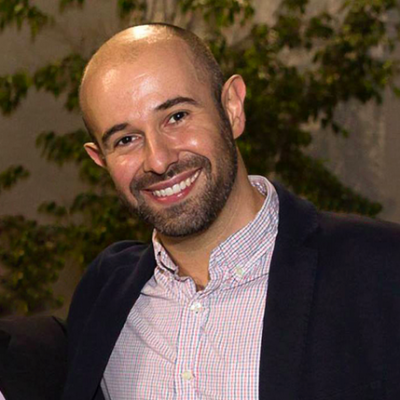
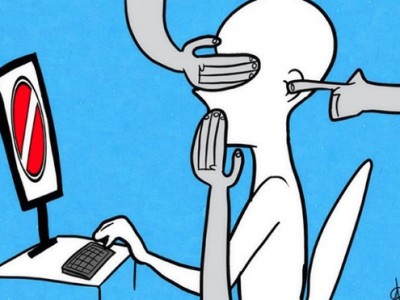
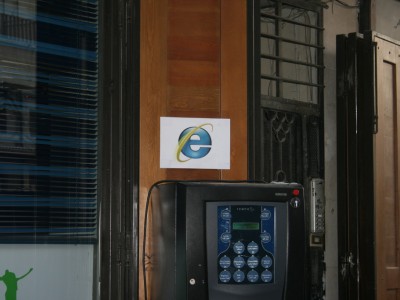
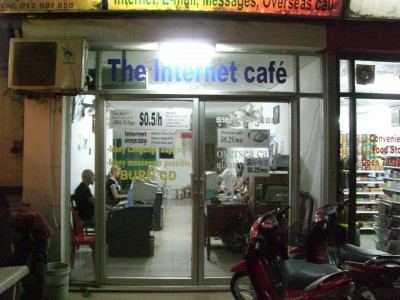







17 comments